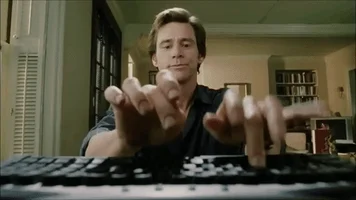Rhode
Island’s war on coronavirus
By Will Collette
Rhode Island’s death toll from
COVID-19 has doubled to 8 and the number of cases is following the same
exponential curve we saw in other parts of the world. Charlestown's count for confirmed cases remains at "<5."
In fact, the CCA is still posting
its March 28 blog entry actively encouraging all to get out and
enjoy Charlestown’s parks and open spaces.
Federal
Emergency declaration
On March 30, Donald Trump took
time away from his precious tweeting and TV watching to sign a federal
emergency declaration for Rhode Island, retroactive to January 20. Gov.
Raimondo says "The
federal government and FEMA will be reimbursing Rhode Island for many of our
expenses."
"It
will give us the resources we need to fight the virus," she added.
Pollen count
In
an earlier Short Takes, I noted that with our trees starting to bud, we will
see high pollen counts from trees on just about every day when it’s not
raining.
If
your allergies make you sneeze, cough and wheeze, think first before you go
into a COVID-19 panic. It may just be your allergies, though you should pay
attention.
But if you also get any combination of fever, body aches, headache
or fatigue – and it doesn’t go away – it might be time to CALL (don’t go) your
doctor.
You
can get the daily pollen forecast for your zip code at Pollen.com.
A personal report
I ventured out to do some shopping today for the first time in
over two weeks. Hated being out of fresh produce and, besides, I needed to pick
up a prescription. So off to Westerly I went.
First, I am grateful and in awe of the staffs at Job Lot, Aldi’s
and CVS (my three stops) for coming in to work, keeping the stores stocked and
being pleasant. I said thanks to each one of them I met - at a proper distance, of course.
I was in Westerly just after noontime and found light traffic
both on the roads and in the stores. I was also surprised at how well stocked
they were – plenty of produce, dairy products, canned goods and staples.
To my shock, I found everything we needed. Job Lot even had to
large supply of paper towels. Aldi’s made what I felt was a wise decision to
set buying limits on a lot of essentials, usually a maximum of two for things
like eggs.
I found prices were at least normal and, in some cases, lower
than usual.
Again, I feel deep gratitude to everyone in the supply chain –
from the farmworkers to the workers in the processing plants to the delivery truckers to the warehouse workers and to the
staff in the stores. Even the execs who figured out how to keep things going rate an attaboy.
When I was in Job Lot, I noticed little signs all over the store
that said a 2% surcharge was being tacked onto every bill to be paid to the workers!
Wow. When I got home, I looked for more information on Job Lot’s
COVID-19 policy for its workers (CLICK
HERE) and found this:
First, each store associate and distribution
center associate will receive a $2 per hour increase in pay until further
notice.
Second, all OSJL associates will be allowed to
purchase merchandise at 30% off regular prices.
Third, we are adding a temporary 2% surcharge
to all customer purchases. Store associates will receive 100% of the proceeds
of this surcharge in addition to the $2 pay increase mentioned above. (For
example, a $10 purchase will now cost $10.20)
Customers may decline to
participate at the register, but we hope you will embrace the opportunity to
thank our associates for their extraordinary efforts.
I
would like to meet any Job Lot customer who “declined
to participate at the register” and hawk a COVID-19 loogie in their face.
In
these times of trouble and stress when our country faces a terrible challenge
with its worst president at the helm, it’s great to see how many people have
retained their sense of decency and their ability to get things done.
Out of staters
On my aforementioned trip, I saw the State Police checkpoint on Route One, just north of the Westerly airport. These checkpoints enforce the Governor's controversial order to make sure that all out-of-state visitors are told they need to self-quarantine for two weeks.
First you see a flashing sign telling folks with non-RI tags to pull into the checkpoint on the southbound side of Route One. There's a State Trooper with flashers on backing up that message.
In the actual checkpoint, there was another State Trooper. When I passed by, there were no out-of-staters in evidence.
 Just
over a month after proclaiming that the number of
coronavirus cases in the United States would soon "be down to close to
zero," President Donald Trump said during a press briefing on the White
House lawn Sunday that limiting U.S. deaths from the pandemic to between
100,000 and 200,000 people would mean his administration and the country as a
whole did "a very good job."
Just
over a month after proclaiming that the number of
coronavirus cases in the United States would soon "be down to close to
zero," President Donald Trump said during a press briefing on the White
House lawn Sunday that limiting U.S. deaths from the pandemic to between
100,000 and 200,000 people would mean his administration and the country as a
whole did "a very good job."





















